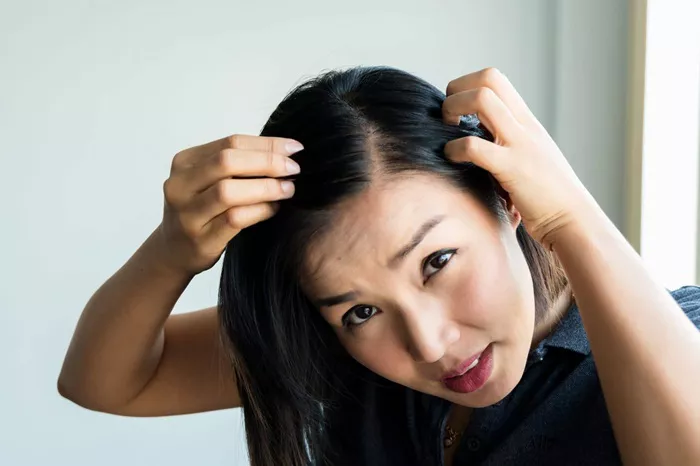Hair loss is a common concern for many people. It can be caused by various factors, including genetics, stress, and nutritional deficiencies. One significant nutritional factor is iron deficiency. This article will explore the connection between iron deficiency and hair loss. We will discuss the symptoms, causes, diagnosis, and treatment options related to iron deficiency and hair health.
Understanding Iron Deficiency
Iron deficiency occurs when the body does not have enough iron to produce hemoglobin. Hemoglobin is a protein in red blood cells that carries oxygen to the body’s tissues. Iron is essential for many bodily functions, including the growth and repair of cells.
Symptoms of Iron Deficiency
Common symptoms of iron deficiency include:
Fatigue: A lack of energy is often the first sign.
Pale Skin: The skin may appear paler than usual due to reduced hemoglobin levels.
Shortness of Breath: Difficulty breathing during physical activity is common.
Dizziness: Feeling lightheaded can occur, especially when standing up.
Cold Hands and Feet: Reduced blood flow can make extremities feel cold.
Brittle Nails: Nails may become weak and break easily.
Hair Loss: Thinning hair or excessive shedding can occur.
SEE ALSO: When Will I Stop Losing Hair After Pregnancy?
The Link Between Iron Deficiency and Hair Loss
Iron plays a vital role in many bodily functions, including hair growth. Hair follicles require a significant amount of oxygen and nutrients to thrive. When there is insufficient iron, hair follicles may not receive the necessary support, leading to hair loss.
How Iron Affects Hair Growth
Oxygen Supply: Iron is crucial for transporting oxygen to the hair follicles. A lack of oxygen can weaken hair strands.
Cell Growth: Iron supports cell proliferation and growth. Hair follicles need iron to produce new cells and hair.
Hormone Regulation: Iron helps in regulating hormones that influence hair growth. Disruption in hormone levels can contribute to hair loss.
Causes of Iron Deficiency
Several factors can lead to iron deficiency, including:
Dietary Insufficiency
A diet low in iron-rich foods can result in deficiency. Iron is found in:
Red Meat: Beef and lamb are excellent sources of heme iron.
Poultry: Chicken and turkey contain significant amounts of iron.
Fish: Certain fish, such as tuna and salmon, provide iron.
Leafy Greens: Spinach and kale are good plant sources of iron.
Legumes: Beans and lentils are rich in iron.
Fortified Foods: Many cereals and grains are fortified with iron.
Increased Iron Needs
Certain life stages increase the body’s iron needs:
Pregnancy: Pregnant women require more iron to support fetal development.
Menstruation: Women who have heavy periods may lose significant amounts of iron.
Growth Spurts: Children and adolescents need more iron during growth phases.
Impaired Absorption
Some conditions can affect how the body absorbs iron:
Celiac Disease: This condition affects the absorption of nutrients in the intestines.
Gastrointestinal Surgery: Surgery that alters the digestive tract can impair iron absorption.
Certain Medications: Some medications can interfere with iron absorption.
Diagnosing Iron Deficiency
If hair loss is suspected to be due to iron deficiency, it is essential to consult a healthcare provider. They may perform several tests, including:
Blood Tests
Complete Blood Count (CBC): This test checks the overall health of red blood cells.
Ferritin Test: Ferritin indicates the level of stored iron in the body.
Serum Iron Test: This test measures the amount of circulating iron.
Physical Examination
A doctor may perform a physical examination to assess overall health and check for signs of iron deficiency.
Treatment for Iron Deficiency and Hair Loss
If diagnosed with iron deficiency, treatment is crucial. Here are some common approaches:
Dietary Changes
Increasing dietary iron intake is often the first step. Including iron-rich foods in meals can help restore levels. Pairing iron-rich foods with vitamin C sources can enhance absorption. Examples of vitamin C sources include:
Citrus Fruits: Oranges and grapefruits.
Berries: Strawberries and blueberries.
Bell Peppers: Red and yellow bell peppers.
Iron Supplements
In some cases, dietary changes may not be sufficient. Iron supplements can help. These come in various forms:
Ferrous Sulfate: A common form of iron supplement.
Ferrous Gluconate: Another type of iron supplement that may be easier on the stomach.
Dosage and duration should be determined by a healthcare provider. Too much iron can be harmful.
Monitoring Levels
Regular check-ups can help monitor iron levels. This ensures that the treatment is effective. Adjustments to diet or supplements may be needed based on progress.
Other Considerations for Hair Health
While addressing iron deficiency is crucial, other factors also play a role in hair health. Here are some additional considerations:
Nutritional Balance
A balanced diet is vital for overall health. Ensure you include a variety of vitamins and minerals that support hair growth, such as:
Vitamin A: Supports cell growth.
Vitamin D: Helps create new hair follicles.
Biotin: Essential for hair health.
Zinc: Plays a role in hair tissue growth and repair.
Stress Management
Stress can contribute to hair loss. Practices such as meditation, yoga, and exercise can help manage stress levels.
Hair Care Routine
A gentle hair care routine can help maintain hair health. Avoid harsh treatments and excessive heat styling. Regularly trim hair to reduce split ends.
Conclusion
In summary, iron deficiency can significantly contribute to hair loss. Understanding the symptoms, causes, and treatments of iron deficiency is essential. If you suspect iron deficiency is affecting your hair, consult a healthcare provider. They can guide you through dietary changes, supplements, and lifestyle adjustments to improve your hair health. By addressing iron levels and maintaining overall wellness, you can support healthy hair growth.
This comprehensive approach not only addresses hair loss but also promotes overall health. Remember that a healthy lifestyle contributes to healthy hair.
You Might Be Interested In

